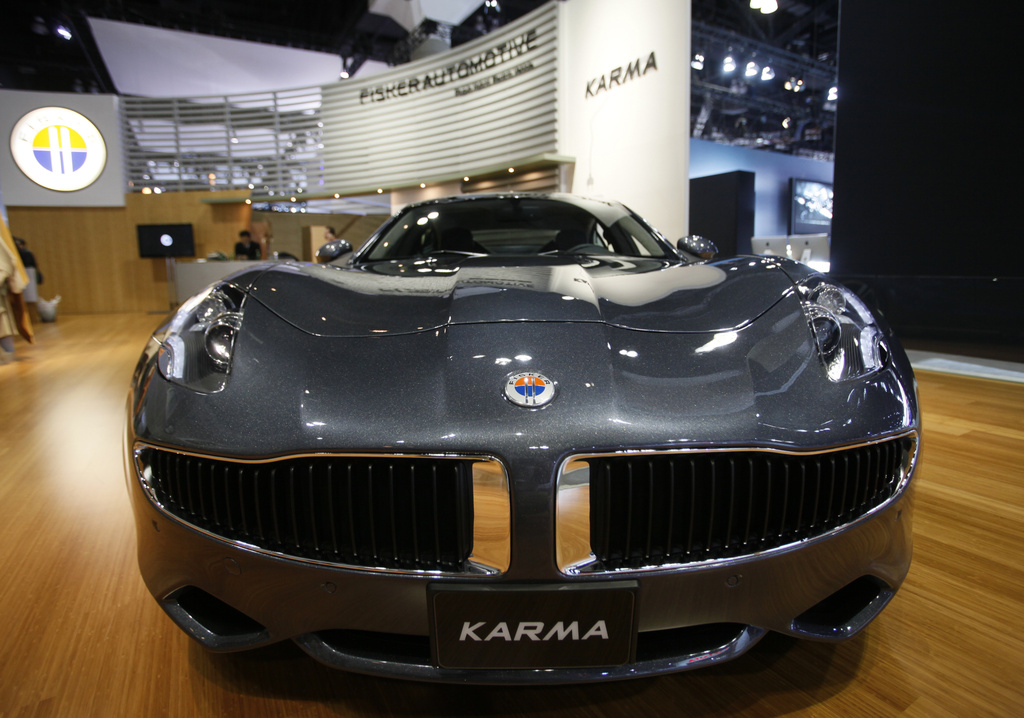Electric vehicle maker Fisker filed for Chapter 11 bankruptcy protection, the second electric startup to do so in the last year as even industry leaders struggle to lure more buyers beyond the early adapters of the technology.
Fisker Group Inc. said in a filing with the U.S. Bankruptcy Court in Delaware that its estimated assets are between $500 million and $1 billion. It estimated liabilities are between $100 million and $500 million, with between 200 and 999 creditors.
“Like other companies in the electric vehicle industry, we have faced various market and macroeconomic headwinds that have impacted our ability to operate efficiently,” the company said in a prepared statement late Monday. “After evaluating all options for our business, we determined that proceeding with a sale of our assets under Chapter 11 is the most viable path forward for the company.”
The 7-year-old electric car company was founded by designer Henrik Fisker, who has been its chairman and CEO. He designed the company’s 2022 Ocean all electric SUV as well as the luxury plug-in hybrid Karma that was launched in 2011. Fisker is also known for leading the development of the BMW Z8 sports car.
Fisker, based in Manhattan Beach, California, and other startups like Lordstown Motors Corp., sought to take on industry leaders like Tesla, and big automakers in Detroit, which have entered the market aggressively.
However, EV sales have slowed as manufacturers have attempted to push electric vehicles into the mainstream. Those sales have been curbed both by a lack of infrastructure, as well as rising inflation that have made taking on car loans more expensive.
Electric vehicles grew only 3.3% to nearly 270,000 during the first three months of this year, far below the 47% growth that fueled record sales and a 7.6% market share last year, according to J.D. Power. The slowdown, led by Tesla, confirms automakers’ fears that they moved too quickly to pursue EV buyers. The EV share of total U.S. sales fell to 7.15% in the first quarter.
That has led to huge price cuts and job cuts at leading companies like Tesla.
Another electric startup, Rivian, said this year that it was pausing construction of its $5 billion manufacturing plant in Georgia to speed production and save money.
Lordstown sought bankruptcy protection last summer, as it dealt with funding difficulties.
Early this year Fisker received a warning from the New York Stock Exchange after its stock dipped below $1. The company’s shares were not immediately delisted and Fisker said at the time that it planned to remain listed on the NYSE and was looking at all available options to regain compliance with NYSE’s continued listing standards.
Fisker Inc. and other U.S. subsidiaries, along with subsidiaries outside the U.S., are not currently included in the bankruptcy filing. Fisker says that it’s in advanced talks with financial stakeholders about debtor-in-possession financing and selling its assets.
(AP)












One Response
Selling a product to make the government happy, but which consumers reject due to the product being more inferior compared to standard motor vehicles (in terms of features, range, ease of refueling, and cost). An example of what happens when a business ignores markets discipline.
If the government was serious, it would increase the subsidy, and limit it to cars costing no more than gas powered cars, that after a ten minute charge can go 300 miles (similar to the typical range on a full tank of gas).
They also need a good reason for electric cars, since no one has shown any evidence that Americans switching to them will have an impact on weather. Arguably, it is a quasi-religious belief of certain movements that is pushing the electric cars based on their genuine faith rather than anything that passes for science.